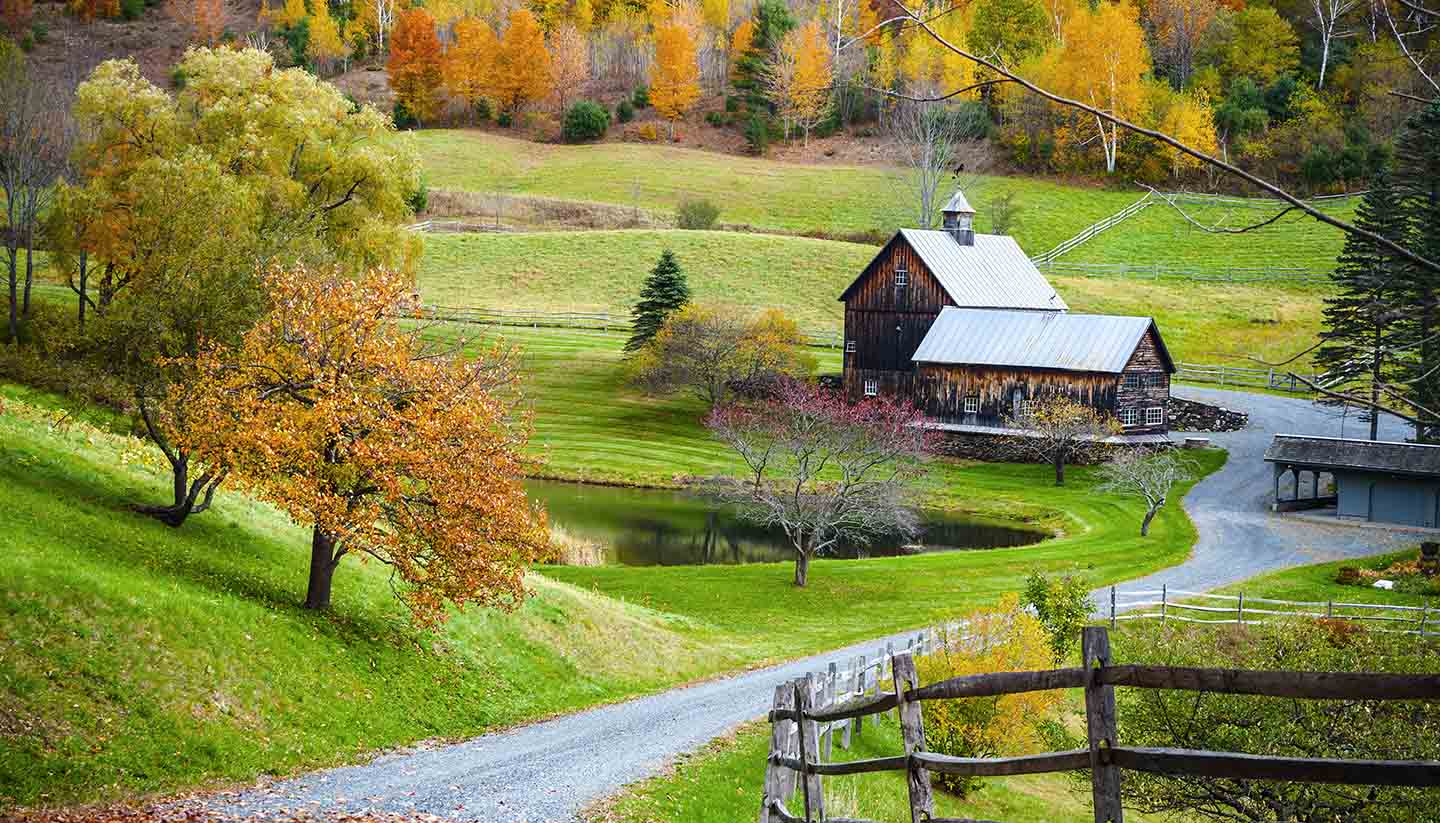Vermont History, Language and Culture
History of Vermont
When French explorer Samuel de Champlain first arrived in Vermont in 1609 he nicknamed the area 'les Verts Monts' meaning the Green Mountains. Champlain soon allied with the Native American Abenaki tribe and to killing an Iroquois chief in a bid to impress. The French then claimed Vermont as part of New France, the first European settlement in the state. In the next century, several European settlements were established throughout Vermont including the British and the Dutch. It wasn’t until the French Indian War that the British officially acquired the territory from France with the 1763 Treaty of Paris.
As British colonies began settling in Vermont, lands started overlapping and friction commenced. New Hampshire and New York disputed on their boundaries of their land in Vermont and New Hampshire claimed their grants in the territory. But in 1764 British authorities declared the grants void and upheld New York’s claim to the territory. Violence erupted as New Hampshire resisted to give up their land and so formed the Green Mountain Boys, an armed bands formed under Ethan Allen to prevent Vermont from becoming part of New York.
The Battle of Bennington was a major turning point in the American Revolutionary War as the victory galvanised colonial support and played a role in bringing France into the rebel side. The victory is still celebrated today as a state-wide holiday. Vermont finally became independent in 1777 but it was not until 1791 that the territory gained its statehood. It was the first state to be admitted to the union after the adoption of the Constitution by the original 13 states.
In the 19th century, Vermont became a prominent area during the Civil War. In June 1843, escaped slaves arrived in Vermont as the first recorded instance of the Underground Railroad, a historical network of secret routes and safe houses used by escaped slaves to flee to free states and Canada. During the war, Vermont changed its views dramatically from Democratic to Republican, and in 1860 it voted for President Abraham Lincoln, giving him the largest margin of victory of any state. Vermont was also very involved in the war, with an estimated 28,100 Vermont residents working in volunteer units.
During the 19th and 20th century, Vermont’s economy boomed as railroads expanded and mills started popping up in New England employing masses of people. On 25 April 2000, a bill was passed in the state granting same-sex couples benefits of marriage in the form of civil unions. Vermont became the third state after Hawaii and California to offer legal status to same-sex couples and the first to offer a civil union status. Then on 8 February 2007 a bill was introduced to allow gay marriage for same-sex couples and on 1 September 2009 same-sex marriage became legal in Vermont.
Vermont Culture
Religion in Vermont
As of 2012, Vermont is considered the least religious state in the US. Only 33% of the population consider themselves religious with the majority identifying as Catholic (21%).
Social Conventions in Vermont
Vermont is known as a liberal state and is regarded as one of the most LBGT-friendly states in the US. Same-sex couples from all over the country travel to Vermont in order to be married, although their marriage may not be recognised in their home state. The state has won several accolades and awards for being one of the most healthiest, peaceful and happiest states in the country. The locals are also very proud of their vast green mountainous landscape and their leading export, maple syrup, which brings in tourists from all over the world.
Language in Vermont
English is the primary language spoken in Vermont with over 90% of the population speaking only English. 6% of the population speaks a language other than English with French being the majority.


